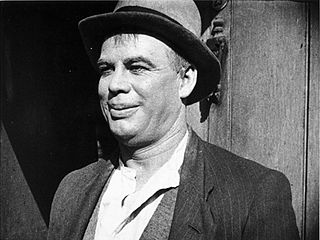
The Man from Snowy River is a 1920 film made in Australia. The film was silent and filmed in black and white, and was based on the Banjo Paterson poem of the same name. It is considered a lost film.

Lottie Lyell was an Australian actress, screenwriter, editor and filmmaker. She is regarded as Australia's first film star, and also contributed to the local industry during the silent era with her collaborations with Raymond Longford.

The Blue Mountains Mystery is a lost 1921 Australian silent film directed by Raymond Longford and co-directed by Lottie Lyell.
Arthur Embery Higgins was a pioneering Australian cinematographer known for his use of trick photography during the silent era. His ongoing collaborations with director Raymond Longford include The Sentimental Bloke (1919) and The Blue Mountains Mystery (1921). He briefly turned to directing with Odds On (1928) however returned to cinematography in 1931 for the remainder of his career.

Arthur Shirley was an Australian actor, writer, producer and director of theatre and film. He was one of the first Australians to enjoy success as a film actor in Hollywood.
Frank Beaumont "Beau" Smith, was an Australian film director, producer and exhibitor, best known for making low-budget comedies.
The Sentimental Bloke is a 1932 Australian film directed by F. W. Thring and starring Cecil Scott and Ray Fisher. It is an adaptation of Songs of a Sentimental Bloke by C. J. Dennis, which had previously been filmed in 1919.
The Church and the Woman is a 1917 Australian silent film directed by Raymond Longford set against the background of sectarianism in Australia. It is considered a lost film.
On Our Selection is a 1920 Australian silent film directed by Raymond Longford based on the Dad and Dave stories by Steele Rudd.
Rudd's New Selection is a 1921 Australian silent film directed by Raymond Longford based on the Dad and Dave stories by Steele Rudd. It is a sequel to On Our Selection (1920). The plot concerns the marriage of Dave Rudd and introduces a sister, Nell.
The Dinkum Bloke is a 1923 Australian silent film directed by Raymond Longford. Despite the title and the presence of Arthur Tauchert and Lottie Lyell in the cast, the film is not a direct sequel to The Sentimental Bloke (1919) or Ginger Mick (1920).
The Jackeroo of Coolabong is a 1920 Australian silent film starring renowned Australian sportsman Snowy Baker. It was the last of three films he made with the husband and wife team of director Wilfred Lucas and writer Bess Meredyth, both of whom had been imported from Hollywood.
Talone Ordell (1880–1948), better known as Tal Ordel, was an Australian actor, writer and director. Ordell was probably born in Calcutta, India, seventh child of Victorian-born parents William Odell Raymond Buntine, drover, and his wife Susanna, née Mawley. He worked extensively on stage and screen as an actor in the 1910s and 1920s, playing Dad Rudd twice for Raymond Longford and Dad Hayseed – a similar role – three times for Beaumont Smith. He was the original "Ginger Mick" in the stage version of The Sentimental Bloke. He toured Australia with Marie Tempest.
Charles Villiers was an Australian actor and occasional director who appeared in many silent films. According to a contemporary report, "there is probably no actor in Australia that has done more consistent picture work than Mr. Yilliers, both as heavy lead, and director." He was particularly well known for playing villains.
Gilbert Charles Warren Emery is an Australian actor best known for his performances as Ginger Mick in the silent films The Sentimental Bloke (1919) and Ginger Mick (1920). These were directed by Raymond Longford with whom Emery had acted on stage in The Fatal Wedding.






